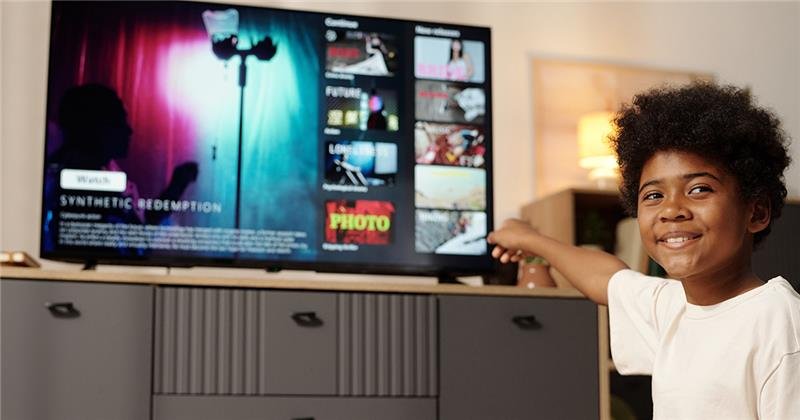Smart TVs have become a staple in modern homes, and with them comes the crucial decision of choosing the right operating system. Two of the leading smart TV platforms are LG’s webOS and Samsung’s Tizen. While both offer sleek user interfaces and advanced functionality, they cater to different types of users. In this article, we will compare Tizen vs webOS to help you choose the better fit based on performance, app support, and overall user experience.
What is Tizen TV?
Tizen OS is Samsung’s proprietary operating system used across a wide range of its devices, including smart TVs, wearables, and home appliances. Designed to be lightweight and responsive, Tizen aims to create a connected ecosystem. It offers a clean UI and fast boot time and supports voice control and smart home features via SmartThings.
What does Tizen TV mean?
Tizen TV refers to smart TVs that run on Samsung’s Tizen operating system. It’s a Linux-based OS developed by Samsung for smart devices, including TVs, wearables, and home appliances. A Tizen TV delivers a fast, responsive user experience with features like voice control, smart home integration, and access to a large library of streaming apps. It’s designed to work seamlessly with other Samsung devices, offering a connected and intelligent ecosystem.
In short, Tizen TV means you’re getting a Samsung smart TV that combines performance, a clean interface, and compatibility with modern digital lifestyles.
What is WebOS TV?
WebOS is LG’s smart TV platform, originally developed by Palm and later acquired and redesigned by LG. It emphasizes ease of use with a card-based user interface and provides a fast, intuitive experience. It supports LG ThinQ AI and voice commands and connects seamlessly with other LG smart devices.

Tizen vs WebOS: Performance Comparison
Speed and Responsiveness
- Tizen: Known for its fast boot times and snappy response. It loads apps quickly and handles multitasking with ease.
- webOS: Also fast, but slightly behind Tizen in performance-heavy situations. The app launch speed is good, though transitions between apps can lag on older models.
Verdict: Tizen wins in raw performance and speed.
User Interface (UI) Experience
- Tizen UI: Minimalist and organized. The bottom ribbon layout provides quick access to frequently used apps. It supports picture-in-picture preview while browsing.
- WebOS UI: Unique card-style layout that’s visually appealing. Switching between apps feels natural, and browsing content is easy. Recent updates added more personalization features.
Verdict: webOS is more intuitive for casual users, while Tizen is more performance-focused.
Tizen OS vs WebOS: App Support
App Library Size
- Tizen UI: Tizen offers a broader app ecosystem, including support for all major streaming platforms, such as Netflix, Prime Video, Disney+, YouTube, and local content apps.
- WebOS: Covers most major platforms but often lags in introducing new or niche apps. Limited access to local apps in some regions.
Verdict: Tizen offers wider app support.
App Updates and Compatibility
- Tizen: Regular updates ensure apps remain compatible and secure. Samsung maintains strong relationships with developers.
- webOS: Updates are reliable, but rollout can be slow. Some older models do not receive consistent updates.
Verdict: Tizen is better for long-term app reliability.
Smart Features and Ecosystem Integration
Voice Assistants
- Tizen: Built-in Bixby, with support for Google Assistant and Alexa. Hands-free voice control is available in premium models.
- webOS: Comes with LG ThinQ AI and supports Google Assistant and Alexa. Voice control is smooth but less customizable than Tizen.
Verdict: Tizen offers more options and better voice recognition.
Smart Home Integration
- Tizen: Strong SmartThings integration. Works well with other Samsung appliances.
- webOS: Integrates well within the LG ecosystem. However, support for third-party devices is limited.
Verdict: Tizen provides broader smart home compatibility.
Gaming Performance
- Tizen: Supports features like low input lag and Game Mode and is compatible with cloud gaming services such as Xbox Cloud Gaming and Nvidia GeForce Now.
- WebOS: Also supports Game Mode and basic gaming optimizations but lacks the same level of cloud gaming support and advanced features.
Verdict: Tizen leads in gaming support.
Privacy and Security
- Tizen: Samsung regularly updates its security patches. It also allows for customizable privacy settings.
- WebOS: LG offers strong privacy controls, including AI data management and user consent features.
Verdict: Both offer solid security, but Samsung is quicker with patches.
Disadvantages of Each Platform
WebOS:
- Smaller app library.
- Slower rollout of updates.
- Limited third-party device integration.
- Less responsive on entry-level models.
Tizen TV:
- Slight learning curve for new users.
- Some models have intrusive ads on the home screen.
- Heavy ecosystem focus may not appeal to non-Samsung users.

Key Takeaways
- Tizen OS vs webOS: Tizen performs better overall.
- Samsung Tizen vs LG webOS: Tizen wins in app support, speed, and smart home features.
- Is Tizen TV good? Yes, especially for those who want performance and features.
- Is webOS TV good? Yes, for casual users and LG fans.
- Tizen vs Smart TV: Tizen is one of the strongest smart TV platforms today.
- OS system: THE LG TV operating system is polished but less powerful.
If you’re shopping for a new TV, your experience will vary depending on the platform. For tech-savvy users or those with smart home setups, Tizen OS is the clear winner. For simplicity and ease of use, webOS remains a solid contender.
LG webOS vs Samsung Tizen: Direct Comparison
When comparing LG webOS vs Samsung Tizen, it becomes clear that each OS has its strengths:
- LG webOS shines with a clean, user-friendly interface and visual appeal. It’s ideal for users who prefer simplicity and an easy learning curve.
- Samsung Tizen offers faster performance, a richer app ecosystem, and better support for gamers and smart home users.
If you’re choosing between an LG TV operating system and Samsung Tizen, consider how you’ll use the TV day to day. If your focus is on quick navigation and a casual viewing experience, LG webOS fits the bill. But if you’re looking for advanced features, future-proofing, and tech-heavy usage, Tizen is the stronger choice.
Looking Ahead: The Future of Tizen and WebOS
Both Samsung and LG are continuously updating their smart TV platforms. Samsung is focusing heavily on AI-powered personalization, 8K optimization, and cloud gaming. LG, meanwhile, is integrating webOS across multiple product lines beyond TVs, such as smart monitors and even third-party hardware.
What to Expect:
- Tizen: Will continue to evolve with better AI content recommendations, improved voice recognition, and expanded app partnerships.
- WebOS: Aims to simplify the connected home experience and push user-centric design with accessible layouts and assistive technologies.
This competition benefits users, ensuring that both platforms stay innovative. Expect faster interfaces, smarter recommendations, and better app access in future updates.
Final Thoughts
Choosing between Tizen OS and webOS comes down to personal preference and brand loyalty. If you’re already invested in the Samsung ecosystem, Tizen is a natural fit. If you love LG’s display quality and want a simpler, visually engaging UI, webOS won’t disappoint.
In 2025, both platforms will be more powerful than ever, but Tizen has the edge in performance, versatility, and future-readiness. Meanwhile, webOS holds strong with its unique interface and ease of use.
For a detailed analysis of webOS and Googel TV, read our blog:
https://max-iptv.info/blogs/webos-vs-google-tv/
FAQs
WebOS has fewer app options compared to Android TV and lacks support for some newer streaming services or games.
Tizen OS can be limited in app variety, has occasional performance issues, and offers fewer customization features than competitors.
It depends on your needs—WebOS offers a smooth interface, Tizen is fast and minimalist, while Android TV provides the widest app selection.
Both are user-friendly, but Tizen is slightly faster in navigation, while WebOS offers better voice control and AI-driven recommendations.





